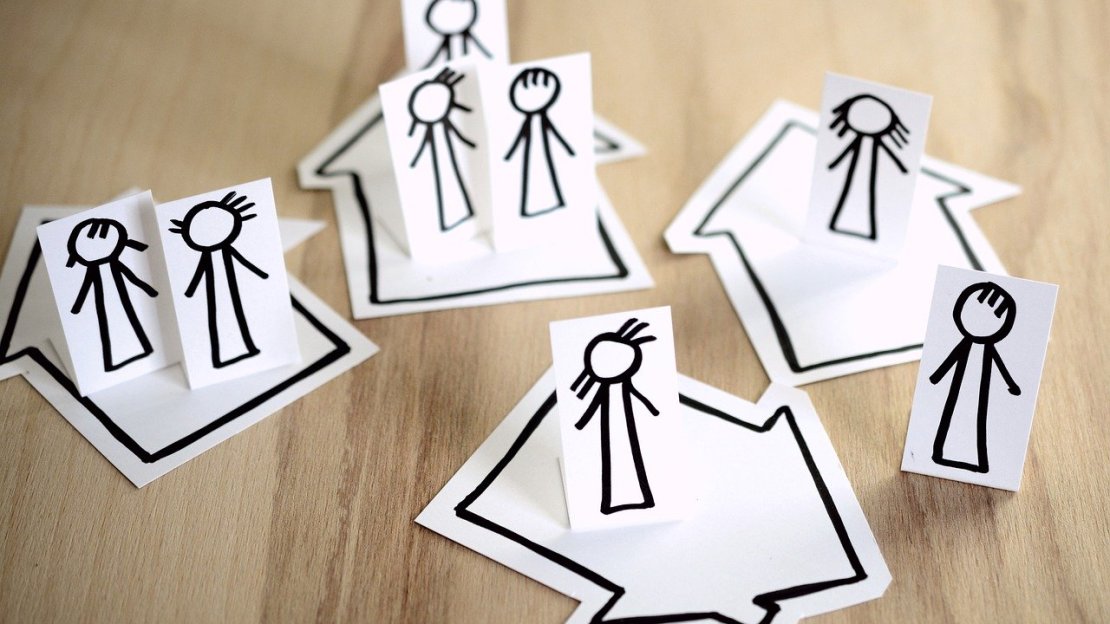John Tolley, May 19, 2020
By now, a great many of us have spent a great deal of time together, for better and for worse. While there is certainly good to be found in the slowing-down of our lives and increased proximity to our loved ones, however forced, there is also no shortage of stresses and pains. The toll this can take on our mental health has a direct impact on our physical health, something top of mind for everyone currently.
Recently, we corresponded via email with Michigan State University professor Bill Chopik, a social-personality psychologist who specializes in relationships. He illuminated the trials, tribulations and even triumphs that can come from the pandemic lockdown and shelter-in-place directives.
(This interview has been edited for clarity and length.)
What are some of the major issues facing couples and families in isolation together?
The most common one is that couples and families don?t spend nearly as much time together as they?re forced to right now! Although many families are cherishing this time together, the time apart can serve a lot of functions-school gives children a focused plan and dedicated space/time outside the home and it gives adults a host of experiences that aren?t shared by their partner or family.
Oftentimes, these experiences are what people bond over and discuss when they eventually are together (e.g., how was your day? What did you learn at school? I need to vent about this annoying thing that happened today.)
When families and couples spend so much time together, the outside-of-home experiences don?t happen. This leads to problems for some families-it affects what they talk about, how they interact, and being around each other so often might make some of the more annoying aspects of your loved ones more salient for some people.
How can we safely resolve the issues that isolation has brought to the surface or magnified?

It sounds difficult, but to the extent you can, give each other space and try to experience independent things that you can then bring back to your family/relationship. It will provide much more fodder for discussion and give people a break.
Also, couples and families bond over being exposed to experiences that are a little outside their comfort zone. So, the extent to which people can shake up what they?re doing in isolation to engage in a new activity, that will help (this is called self-expansion theory-that we expand how we see ourselves to include others and others? experiences).
And, finally, being more mindful and forgiving of others is of the utmost importance.
To what degree is self-reflection an important component of maintaining healthy relationships?
It?s crucial and it?s more important than ever even though it?s harder to take the time to be alone when ?isolating together? with your family. In the moment, it is very hard to disengage from our feelings. That?s why fights seem so much worse in the moment and that we ruminate about them after-whether we think we were right or that we overreacted.
Having accurate self-knowledge and taking the time to reflect likely helps ease relationship problems. It provides a type of emotional grounding when we?re overwhelmed by life and the world at large.
How best can those caring for children maintain their own mental wellbeing while remaining emotionally and physically available?
Creating and maintaining schedules that provide children with dedicated time to work independently on something will make parents feel much better. Sometimes, that may very well involve screens and entertaining themselves. But there are plenty of other freely available activities and resources online for how parents can interact with their children during this time or develop activities that are both engaging for children and give mom or dad a break. Here are a few examples:
100 Fun Stay-At-Home Activities for Children under 7
Ideas for Children Physical Distancing
Scouts Indoor Activities
For anyone in isolation with another, is there a point where attempting to accommodate the needs of another or to achieve some level of harmony can be too much? Is there ever utility in going along to get along?
Definitely, there is a weird effect in which overinvesting (or, only investing) in accommodating others can ultimately be damaging for individuals and their relationships.
The sole focus on accommodating others might lead to resentment (for the one accommodating) and, ironically, this might ultimately undermine the relationship. It does so by undermining the communal nature of relationships-that two people freely do things for each other and accommodate each other without trying too hard or keeping score of all the efforts we do to make that happen. So, of course, accommodate your partner and family to maintain harmony. But, like most good relationships, it should be a two-way street!
How might couples and families benefit from the extreme proximity of our times?
I actually think that, despite the conditions that necessitated the extreme proximity, there will be some benefits for families. Of course, for a lot of families, the extreme proximity is extremely stressful and relationships won?t necessarily improve. But for a lot of other families, it mandates that they spend more time together, be creative in the things they do together, and critically evaluate how they interact with each other. Many families will never spend as much time together as they are at this very moment.
For the academic and research community, what might we learn from this quarantine and its impacts on the spectrum of relationships?
That?s actually a big mystery, for a lot of reasons. There is some literature on how other crises-mostly natural disasters-affect close relationships. The answer, as you might expect, partially depends on what your relationship was like before the quarantine. For example, after disasters like hurricanes, there are often spikes in divorces, and these divorces can be attributable to greater stress.
However, we also see spikes in marriages, new relationships, and even childbirths after disasters. The stress of world events brings some people closer together than before and results in these outcomes. The increase in childbirth can be attributable to a lot of things-couples evaluating if they want children and perhaps some pleasant surprises when you are stuck in close proximity to someone you love 24/7. Of course, this effect might be limited to first childbirths.
Beyond that though, there has been a rush of social science research that has been launched recently, so we?ll know more soon. That work, so far, hasn?t been peer-reviewed but it gels with a lot of what we know about relationships-that having a responsive partner can buffer against the stressors that result from the quarantine and COVID-19.
Beyond that though, the degree to which non-familial relationships are maintained and formed, particularly over electronic channels, is really unknown because it is such an unprecedented time for friendships and the like!







